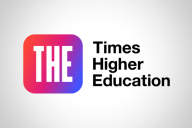You have /5 articles left.
Sign up for a free account or log in.
This article is the third in a multipart series on career paths beyond the academy. The first piece provided advice on when and why to consider careers outside higher ed, and the second provided advice for exploring career paths and taking care of yourself while navigating a potential career transition.
Once you’ve decided to explore leaving—or decided that you’re going to leave—the process rarely happens overnight. Although the interview process outside the academy is often much quicker, you can still expect to put significant time into researching organizations, developing your materials and preparing for interviews.
As you are developing your résumé and cover letter and preparing for interviews, it’s important to use the language of the industry you’re applying to, reframing your experience for your audience. You can learn and use this language by reading job descriptions closely, reading trade publications, through informational interviews and through courses, certificates and webinars that focus on professional learning and development.
As you are crafting your résumé, be sure to look at examples from other professionals in the field(s) to which you’re applying. Develop a generic résumé template and then carefully adapt it for each position you apply to. As you are revising your résumé for specific positions, tweak the language to mirror the language in the job description. For instance, if the job ad lists “event publicity” in the requirements, revise your résumé from “event marketing” to “event publicity.” Clearly conveying the impact of what you did is as important as describing your job responsibilities. For example, rather than “Developing and leading universitywide training and upskilling program,” use “Developing and leading enterprisewide training and upskilling program for 50-plus units, exceeding uptake target by 32 percent and under budget by 66 percent.”
Rather than repeating your résumé in narrative form, your cover letter should convey why you’re passionate about what you do; what makes you excited about the mission, products or services of the organization you’re applying to; and why, specifically, this role is an excellent fit for you. Highlight two or three key areas of your skill set and experience that are most relevant to the position, rather than trying to provide an exhaustive but surface-level overview of everything you’ve accomplished. As with your résumé, reviewing examples of cover letters from other professionals working in the area you’re applying to can be extremely helpful in ensuring that you’re on the right track in terms of both tone and content.
Once you are contacted for an interview, celebrate! Transitioning career paths is a significant undertaking, and I strongly encourage you to celebrate each step of your success.
As with your résumé and cover letter, it’s important to connect the dots for your interviewers between your experience in higher ed and in the industry to which you’re applying. Your pitch should be polished, compelling and targeted to the specific company and role for which you’re interviewing. Before you begin the interview process, develop talking points. Review each item in the job description and be prepared to speak to how you have done similar work in the past and with what outcomes. Focus on describing what you did, how you did it and with what impact. Industries beyond the academy often highly value teamwork, collaboration and collegiality; using examples that illustrate how you’ve not only participated in but facilitated collaborations is important. Your job in the interview process is not to convey how much you want the job—although enthusiasm is important—but how you can help the organization you’re interviewing with to solve the specific business needs outlined in the job description.
Having a well-developed list of questions for your interviewers that help you assess topics that are important to you in your next career move is a critical part of interview preparation. In addition to learning more about the specific role and the team you’ll be joining, you should also be exploring whether the organization and its culture are a fit for you.
Fortunately, you don’t have to wait until you start the interview process to start answering that question. Read reviews on GlassDoor (which also posts reviews of interview processes and sample interview questions), Indeed and other review platforms. Look for organizations that regularly win awards in areas important to you—work-life balance, happy employees, best places for women, best places for parents, best places for minorities, etc. Comparably’s Best Companies for Happiness, Fortune’s Best Companies to Work For, Newsweek’s Most Loved Companies and similar rankings of employers are also useful sources of information about organizational culture.
Remember that interviewing is a two-way street; you should be just as focused on determining whether a particular organization and role are an excellent fit for you as you move through the interview process as your interviewers are on determining whether you’re the right candidate for the role.
In the next and final piece in this series, I’ll share advice for navigating a professional identity change, creating a vibrant new professional network and flourishing in your career beyond the academy.
Brandy L. Simula (she/her/hers) is a consultant, coach and professional speaker working at the intersections of leadership and organizational development, DEIB and well-being. After a decade working as a scholar, teacher and administrator in higher ed, she transitioned to a leadership development role at a Fortune 50 in 2021. Read more about her work at brandysimula.com.








